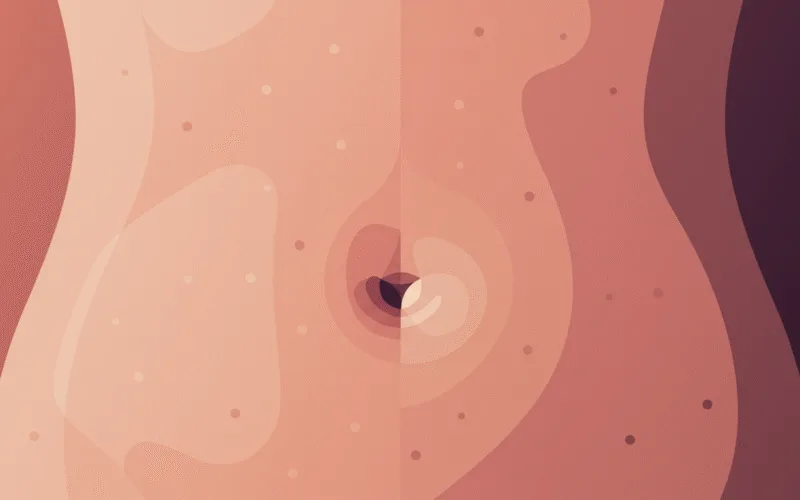Islamic ruling on belly-button dirt: why it isn’t najis, evidence from Sunnah, and practical hygiene tips to avoid undue worry (waswasa).
Praise be to Allah.
Islamic law defines najis (ritual impurity) very specifically. Everyday body dirt—like dead skin, lint, or soap residue in your navel—falls outside these categories. Your ghusl and wudu remain valid even if you forgot to clean it before drying.
Is Belly-Button Dirt Najis?
Simple Answer: No
Belly-button grime is tahir (pure). It’s natural accumulation from skin cells, oils, or fabric fibers—not a ritual impurity. Your prayer, towel, and bedding are unaffected.
Evidence
From Hadith:
When women asked about dresses touching filthy ground, Umm Salamah (RA) narrated:
The slave-mother of Ibrahim ibn AbdurRahman ibn Awf asked Umm Salamah, the wife of the Prophet (PBUH): I am a woman having a long border of clothe and I walk in filthy place; (then what should I do?). Umm Salamah replied: The Messenger of Allah ( peace be upon him) said: What comes after it cleanses it.
Sunan Abi Dawud 383
From Fatwas:
“Normal body dirt doesn’t break wudu unless mixed with actual najis.”
Shed skin and oils are inherently pure. As Ibn Baz (Fatāwá Islāmiyyah 1/88) ruled
- Clean your navel gently during showers using water or a damp cloth.
- No need for special soaps or tools.
Bottom Line
Najis Substances Include:
- Urine and feces
- Blood (beyond minor traces)
- Discharges from private parts
- Alcohol
- Dead animals (except fish/locusts)
Your belly-button dirt is not najis. You didn’t spread impurity to your towel, hair, or pillow. Maintain simple hygiene, pray confidently, and dismiss unfounded doubts.
And Allah knows best.
Got a question? Feel free to ask mufti and get quick answers.
MORE:



 WhatsApp Channel
WhatsApp Channel
 Instagram
Instagram
 Facebook
Facebook
 X (Twitter)
X (Twitter)